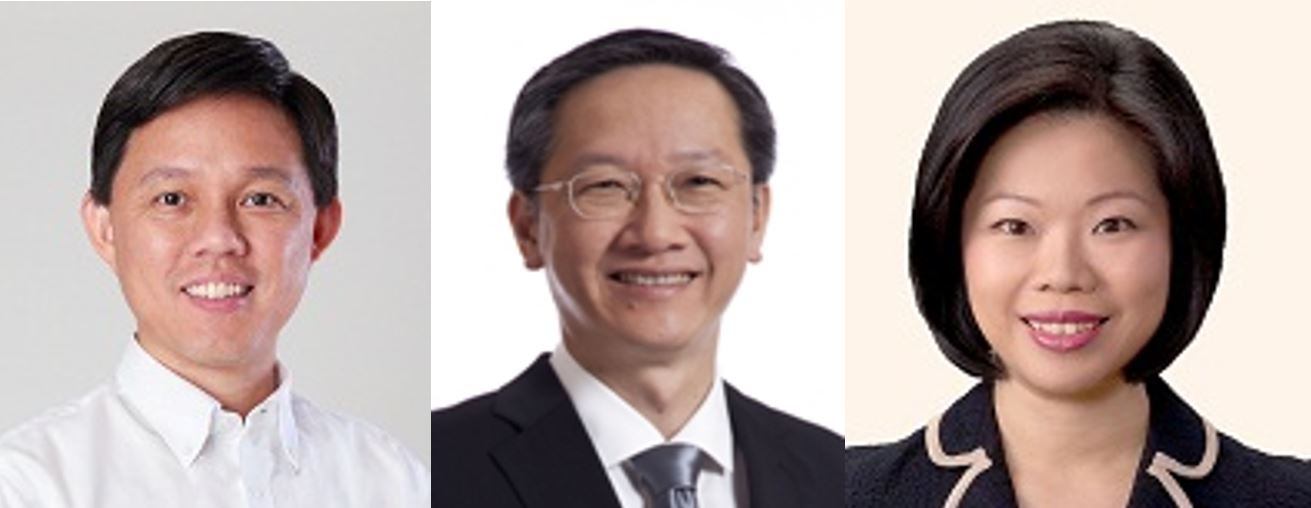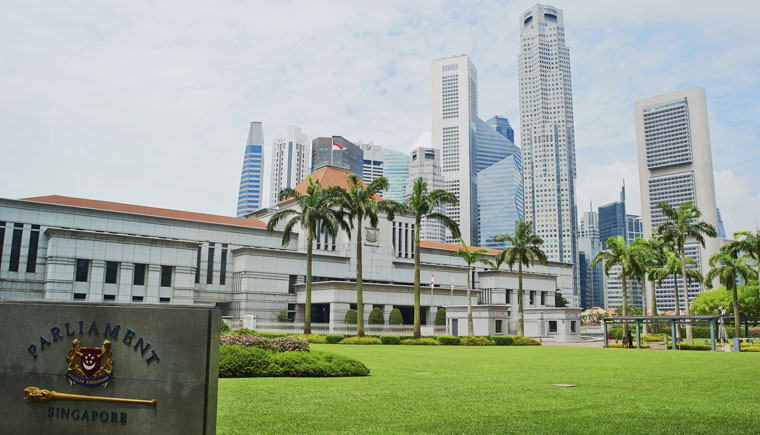A wearied-looking PM Lee Hsien Loong apologised yesterday (Jun. 19), for the controversy ignited by his siblings Lee Hsien Yang and Lee Wei Ling over the legacy of their family home.
To refute his siblings' charges, which include serious allegations against his conduct and the impartiality of Singapore's government institutions, PM Lee will be making a Ministerial Statement when Parliament sits on Jul. 3.
You might be surprised to know that this is not the first time PM Lee has chosen to speak about deeply private details regarding his family situation in Parliament.
In May 1996, PM Lee aired the private issue of his condominium purchases in a parliamentary speech. He had done so to "dispel any lingering mystery or doubt" over his purchases.
Party Whip - Huh, what is that?
In a perverse way, The silver lining in all this is that the Lee family spat has allowed Singaporeans, who had been blissfully unaware of how our institutions work, a chance to learn about parliamentary proceedings and conduct.
PM Lee mentioned in his video statement that the PAP party whip will be lifted after he delivers his statement on Jul. 3, in order for Parliament to have a full public airing of the issues.
Now what exactly is the role of the Party Whip?
According to the Parliament website:
Party Whips ensure good communication within the party and contribute to the smooth running of the party's parliamentary machinery. The Whip lists down the speakers for each item of business and estimates the time required so that everything can be completed within schedule.
Often regarded as the disciplinarians controlling MPs in their respective parties, the Whips ensure that there are always sufficient party members in the Chamber to support the party's position and that MPs vote according to the party's line. Occasionally, he may "lift the whip" and allow MPs to vote according to their conscience.
The present Government Whip is Mr Chan Chun Sing. He is assisted by two Deputy Government Whips, Ms Sim Ann and Mr Sam Tan.
 From left: Chan Chun Sing, Sam Tan and Sim Ann (Source: Parliament Website)
From left: Chan Chun Sing, Sam Tan and Sim Ann (Source: Parliament Website)
Lifting The Whip - 5 Rare Moments in History
Over the last 52 years of Singapore's independence, occasions in which the Party Whip has been lifted by the ruling party are extremely rare.
But they do happen, and here are five past examples.
1. The Abortion Act (December 1969)
The Abortion Act was passed by Parliament on Dec. 29, 1969.
The Act which came into effect on Mar. 20, 1970, reformed and liberalised the law concerning the practice of abortion in Singapore.
It provided for the creation of an 11-member Termination of Pregnancy Authorisation Board to authorise the termination of pregnancy by registered medical practitioners. The Board was empowered to authorise an abortion under defined circumstances, but conditions were also set out for certain abortions to be performed by registered medical practitioners without the authorisation of the board.
During a heated debate in which the Party Whip was lifted, a female Member of Parliament (MP) Madam Chan Choy Siong described abortion as "tantamount to murder".
Based on a voice vote, the government won, but there was a call for a division from certain backbenchers and the result was: 32 "ayes", 10 "noes", one absentation and 15 absentees.
Interestingly, the absentees included then PM Lee Kuan Yew, Foreign Minister and Minister for Labour S Rajaratnam and Minister for Technology Toh Chin Chye.
2. The Goh Keng Swee Education Report (Mar. 1979)
Then Deputy Prime Minister Goh Keng Swee was tasked to lead a study team to identify problems in Singapore’s education system, and propose solutions for reform in Aug. 1978, to align the education system with rapidly changing social and economic needs.
Submitted on Feb. 9, 1979, the report identified three main shortcomings in the education system, namely, high education wastage, low levels of literacy and ineffective bilingualism.
Among the major changes brought about by the Goh Report was the streaming of pupils into different courses at the upper primary and secondary levels depending on their language proficiencies and academic abilities.
It was a radical suggestion that prompted 27 MPs to debate passionately for four days with the Party Whip fully lifted.
An amended motion on the Goh Keng Swee report was finally passed unanimously on Mar. 30, 1979.
3. Debate on having Nominated MPs (May 1992)
Then PAP MP for Ayer Rajah Dr Tan Cheng Bock was the sole voice saying "no" when the House debated whether it should have Nominated MPs.
"The Prime Minister (Goh Chok Tong) has kept his word. He knew that some of us had very fundamental reservations on this. He respected our views and introduced a clause allowing future Parliaments a say on whether we want Nominated MPs or not. And as he said, he is prepared to lift the Whip. These are very generous concessions.
His generosity and personal style make it more painful for me to vote against. But my own feeling on this fundamental democratic principle of having only elected Members of Parliament in this House is too strong to be compromised....
I cannot support this motion."
4. Debate on Review of JC and Upper Secondary Education (Nov 2002)
In 2002, Minister of Education Teo Chee Hean appointed the then Senior Minister of State for Trade & Industry and Education, Tharman Shanmugaratnam, to chair a committee to review Junior College (JC) and Upper Secondary Education in line with a knowledge-based economy.
The committee recommended "diversity and flexibility" as the way forward and led to a broader and more flexible JC curriculum and a more diverse upper secondary education landscape. The Integrated Programme (IP) was one of the key outcomes from this review.
The debate in parliament saw 34 MPs joining in.
5. Human Organ Transplant (Amendment) Act (March 2009)
The Human Organ Transplant Act (HOTA) was enacted in 1987 and has undergone major amendments in 2004, 2008 and 2009 to extend its coverage so that more people can benefit from organ transplants.
Following the 2009 amendments, payments may now be made to living donors to reimburse them for the loss of earnings and other costs or expenses, including medical care and insurance protection, incurred as a result of the organ donation.
This issue of reimbursement was the subject of a much heated debate in parliament as some members of parliament were concerned that it could be a backdoor to organ trading.
It was eventually passed in parliament with one dissenting vote and four abstentations.
Top image from thinkstock photo
Keep up with the developments in the Lee family feud here:
If you like what you read, follow us on Facebook and Twitter to get the latest updates.
If you like what you read, follow us on Facebook, Instagram, Twitter and Telegram to get the latest updates.

